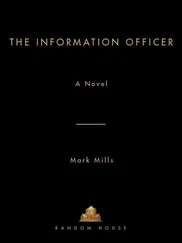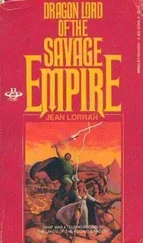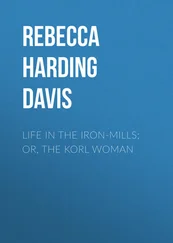Mark Mills - The Savage Garden
Здесь есть возможность читать онлайн «Mark Mills - The Savage Garden» — ознакомительный отрывок электронной книги совершенно бесплатно, а после прочтения отрывка купить полную версию. В некоторых случаях можно слушать аудио, скачать через торрент в формате fb2 и присутствует краткое содержание. Жанр: Старинная литература, на английском языке. Описание произведения, (предисловие) а так же отзывы посетителей доступны на портале библиотеки ЛибКат.
- Название:The Savage Garden
- Автор:
- Жанр:
- Год:неизвестен
- ISBN:нет данных
- Рейтинг книги:4 / 5. Голосов: 1
-
Избранное:Добавить в избранное
- Отзывы:
-
Ваша оценка:
- 80
- 1
- 2
- 3
- 4
- 5
The Savage Garden: краткое содержание, описание и аннотация
Предлагаем к чтению аннотацию, описание, краткое содержание или предисловие (зависит от того, что написал сам автор книги «The Savage Garden»). Если вы не нашли необходимую информацию о книге — напишите в комментариях, мы постараемся отыскать её.
The Savage Garden — читать онлайн ознакомительный отрывок
Ниже представлен текст книги, разбитый по страницам. Система сохранения места последней прочитанной страницы, позволяет с удобством читать онлайн бесплатно книгу «The Savage Garden», без необходимости каждый раз заново искать на чём Вы остановились. Поставьте закладку, и сможете в любой момент перейти на страницу, на которой закончили чтение.
Интервал:
Закладка:
You could go a whole day in San Casciano barely seeing a soul, but come early evening, the entire town (or so it seemed) took to the streets, making for Piazza Cavour. Couples, families, black- shawled widows bent with the weight of years: They all gathered, sauntering around.
Signora Fanelli had painted a picture of a fractured community, yet here they all were, congregating, carrying on as normal. He wondered what their stories were, and whether thirteen years was really time enough to forgive and forget.

He worked during dinner, although at a certain point it ceased to be work, Dante's wild imagination and spectacular imagery carrying him effortlessly along. On reaching the seventh circle of Hell, he was pleased to finally encounter a sin he hadn't committed: murder. Strangely, Dante rated this as a less grievous offense than both hypocrisy and flattery, which he had placed in the eighth circle. Here, a group of souls was walking endlessly around in a circle, a devil slicing them open from top to toe each time they passed him, only for the wounds to reheal. These were the Sowers of Discord and Schism, the prophet Muhammad chief among them. True to form, Dante had devised a punishment appropriate to the sin, splitting each of them apart for all eternity, as they had sought to divide others during their lifetimes.
But amongst all the unfortunates being eviscerated by devils, boiling in rivers of blood and choking on human excrement, there was still no sign of any of the characters from the garden. Frustrated, he started to skip ahead, skimming the pages for their names: Flora, Zephyr, Daphne, Apollo, Hyacinth, Echo, Narcissus. This is what he was doing when a figure appeared at his shoulder. "Hi."
Adam turned and looked up at Fausto. He appeared more presentable than before. His chin was still blackened with stubble but he'd run a comb through his long lank hair, and he was wearing a clean shirt, buttoned up to the neck—small concessions to smartness that didn't quite mask a congenital disregard for externals.
"Can I?" he asked, dropping into the chair opposite.
Adam pointedly checked the number of cigarettes in his packet. "Sure."
Fausto smiled. "Don't worry, I brought my own this time."
"How are you?"
"Good. Tired. Working too hard."
"I don't even know what you do."
"The minimum," grinned Fausto. "I have a small place on the hillside there. There's always something to do. Right now I'm building a shed for a pig."
"You have a pig?"
"Not yet. But it'll be the happiest pig alive when I do." He glanced at Adam's book. "Dante, eh? Lasciate ogni speranza, voi ch'entrate. ,,,
It was a well-known line from the poem, the inscription on the Gates of Hell: Abandon all hope, ye who enter.
"You know it?"
"Do I know it? Do you know Shakespeare? Do you know Milton? Dante is a son of Tuscany." Fausto laid his hand on the book. "This is the reason the Tuscan language is the language of Italy, did you know that?"
"Yes."
When writing The Divine Comedy, Dante had shunned Latin in favor of his Tuscan vernacular, a clear break from tradition, and one that had enshrined the dialect as the national language.
"A great man—like Machiavelli, another Tuscan."
"I know."
"But I bet you don't know that Machiavelli wrote The Prince just down the road from here."
"Really?"
"Sant'Andrea in Percussina, not even three kilometers away. He was forced to leave Florence, like Dante. Two great works written in exile. Coincidence? I don't think so."
Fausto wasn't lying; he knew a lot about The Divine Comedy, right down to the names of the popes Dante had consigned to his Hell. In fact, Fausto seemed to know a lot about pretty much everything, which wasn't altogether surprising—he had been a student at the University in Florence when war broke out.
A member of the Partito Socialista at the time, he said he was involved in the struggle against the Fascists' creeping grip on the university. Then when the armistice was signed and the Italians suddenly found themselves under occupation by the Germans, their former allies, he became caught up in the fight for national liberation. At first, he helped distribute underground newspapers with punchy titles like Avanti! and Avanguardia. Then he picked up a gun and began to fight, heading for the hills and joining a partisan group. Many had, men of all kinds, all classes. Signora Docci's younger son, Maurizio, had done the same thing. A radical, a member of the Comitato Interpartiti di Firenze at the time, he had abandoned politics for the gun.
"I never fought with him, but he was known as a good leader, a good fighter." Fausto paused. "You see, in the end words don't count for much. You have to hurt your enemy. The Americans understood that—you English too. You have to kick him hard enough till he leaves you alone."
Fausto couldn't have been much more than Adam's age at the time, and Adam found himself reaching for equivalents in his own life. The best he could come up with was an unremarkable stint of National Service, and adding his name to a petition censuring Anthony Eden for his handling of the Suez crisis.
The liberation of Italy didn't bring happier times, Fausto went on. The socialist and communist factions, united under the banner of a common cause, fragmented once more. The Americans were damned if they were going to allow the country to go to that dog Stalin, and promptly set about showering the Christian Democrat party with dollars in a bid to buy the soul of the country. Years on, they still were.
"Really?"
"Millions of dollars every year. But a rich, Anglo-Saxon, Protestant country can't impose its values on a poor, Latin, Catholic one.
We're poor. We earn a quarter of what you do in England—one sixth of what the Americans do."
"The country's getting richer, I heard."
Fausto exhaled, fixing Adam with a stare. "True. And if it continues, maybe the Americans will win in the end."
"Ah, the Americans, the Americans," sighed Signora Fanelli, approaching their table. "What have they done now, Fausto?"
"You want to know what the Americans have done?"
"Not really."
She flashed a wicked smile and replaced their empty carafe of wine with a full one. "On the house—a leaving present."
"What a woman," said Fausto with a strange mix of indignation and desire, watching her walk away. He topped up their glasses. "You're leaving?"
"Not Italy. I'm going to stay at Villa Docci."
Fausto nodded a couple of times. "I thought I told you to be careful."
"You said it was a bad place."
"And it is."
Fausto's evidence was pretty compelling. When he was done presenting it, it occurred to Adam that if you mined the history of any family you might unearth a grim catalogue of intrigues, deceits and unusual deaths; but somehow you couldn't help thinking that the Doccis had suffered more than their fair share of misadventure over the centuries.
As their fortunes had fluctuated, the estate had fallen in and out of the family's possession. Somehow it had always returned, though. Something—a marriage of convenience, a betrayal or a bribe—always ensured that the family and the property were never separated for too long.
The times they were together, it was rarely a happy union.
People died in fires, fell from their horses, smothered their loved ones or had their throats slit in the night. Presumably, many had led quite happy and uneventful lives at Villa Docci, but Fausto's point was this: the house attracted ill luck to itself, like a flame draws moths, and he selected his stories to bear out his argument.
"And Emilio?" asked Adam.
Читать дальшеИнтервал:
Закладка:
Похожие книги на «The Savage Garden»
Представляем Вашему вниманию похожие книги на «The Savage Garden» списком для выбора. Мы отобрали схожую по названию и смыслу литературу в надежде предоставить читателям больше вариантов отыскать новые, интересные, ещё непрочитанные произведения.
Обсуждение, отзывы о книге «The Savage Garden» и просто собственные мнения читателей. Оставьте ваши комментарии, напишите, что Вы думаете о произведении, его смысле или главных героях. Укажите что конкретно понравилось, а что нет, и почему Вы так считаете.











